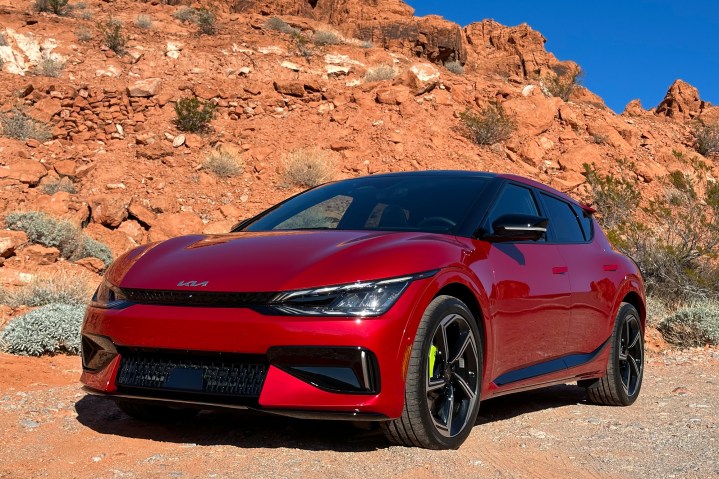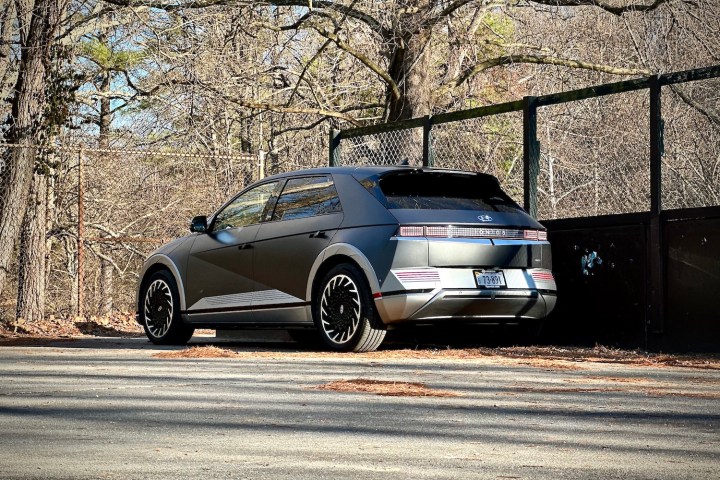EV manufacturers have long claimed that while electric cars often cost more upfront, they’ll save you money in the long run thanks to the lower cost of maintenance and the fact that electricity is cheaper than gas. While it’s true that EVs are cheaper over the life of a car, a number of factors can affect how long it will take to recoup the upfront investment. You’ve probably considered the cost of charging at home and at public charging stations, but here’s one factor catching EV buyers off guard: state registration fees.
Depending on where you live, you could pay hundreds of dollars more to register your car than drivers of gasoline cars do. Here’s why that’s happening, how much it’s costing EV drivers, and whether you should be concerned.
Why are states imposing EV taxes?
There are some good reasons why electric car registration fees are higher than those for gas cars. In most states, there’s a gas tax that’s usually at least 20 cents per gallon, and sometimes much more. California, for instance, charges 58 cents per gallon. That tax usually goes to things like road upkeep.
So what happens if customers stop paying for gas? Well, there’s less money for road upkeep. This means that states have to figure out other ways to make back the money needed to keep roads in good shape, and it only makes sense that these taxes should come from drivers of the cars using the roads.

The gas tax isn’t perfect, but taxing gas does mean that drivers who use the roads more pay more towards road upkeep. Changing the tax to a registration fee means that everyone pays a blanket amount, regardless of how often they drive. So a driver who works at home, and just uses their car to go to the grocery store once per week pays the same as those who commute two hours per day, putting more wear on the roads.
There’s no real quick fix to this issue, unfortunately. States could perhaps tax electricity generated at public charging stations — but most buyers charge at home or at work, making it difficult to determine how much of that electricity actually goes toward car charging. Alternatively, states could track mileage driven. Hawaii does this with an odometer reading obtained during a vehicle inspection at registration — however, this may not fly in states like California, where drivers can renew registration online, and where DMV wait times are much longer.
For now, imposing a big blanket tax on EVs is likely pretty easy for lawmakers to pass, considering the fact that EVs are often still considered a luxury for the rich. That, however, is changing — and lawmakers will likely have to come up with something that makes a little more sense. Consumer Reports, for example, recently concluded that the maximum justifiable fee to charge Texas EV drivers for lost gas tax revenue is $71 per car. In reality, though, it charges much more.
How much do EV registration fees cost?
These newly imposed EV registration fees vary widely from state to state, and given the fact that EV adoption is currently exploding, it’s likely that they’ll change more in the near future. And most states currently have some kind of EV registration fee on top of the standard car registration fee.

Some EV registration fees can be relatively pricey. Texas Gov. Greg Abbott, for example, recently signed into law a new bill that raises the added EV registration fee to $200 per year — much higher than the standard fee of $50.75 for non-EV owners. Washington EV owners pay even more — $225 per year.
Not every state charges that much, of course. California charges “up to $175” per year, depending on the car’s value, while Hawaii charges $50 per year, or $0.008 per mile as a road usage fee. Hawaii has announced that it will be removing the $50 option starting in 2028, and in 2033, will apply the road usage fee to all drivers, regardless of car type.
The benefits outweigh the downsides
Of course, the benefits of owning an electric car seriously outweigh the potential downsides. After all, most gas car drivers still spend much more than $225 per year on gas. That’s not to mention things like the $7,500 federal tax credit, if you can get it, along with the much lower cost of maintaining an electric car.

You could split up these costs and benefits into two categories — those that come just by owning an electric car, and those that are imposed or offered by the government. It just makes sense that you would save money by powering a car with electricity. Sure, added taxes are a little frustrating, but if you can get that tax credit, it’ll pay for many years of registration fees.
The matter isn’t settled
The landscape of electric car registration fees is changing quickly. It’s entirely possible that we’ll see more governments switch fully to a usage fee, like Hawaii. Until then, EV car owners may have to pay a little more at the DMV — but they should keep in mind that in the long run, they’re still saving a ton of cash compared to owning a gas-powered car.
Editors’ Recommendations
Services Marketplace – Listings, Bookings & Reviews